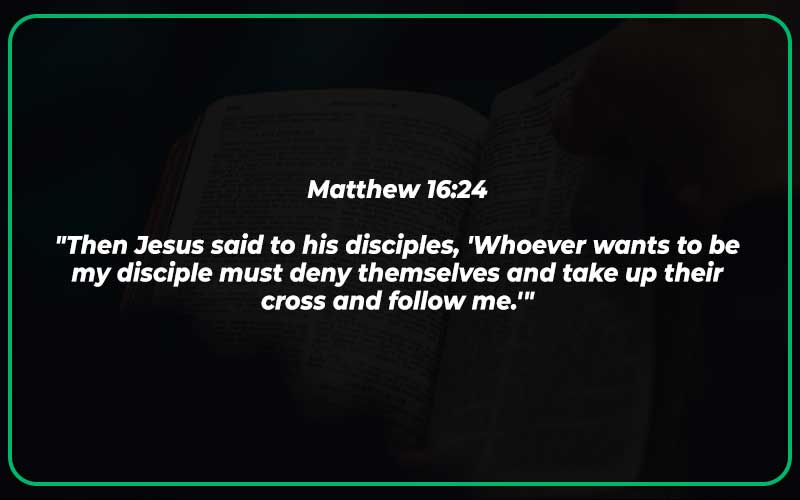In a world brimming with choices and challenges, the age-old question “What would Jesus do?” serves as a moral compass for countless individuals seeking guidance and inspiration.
This simple yet profound phrase has woven its way into the fabric of modern culture, reflecting a deeper yearning for ethical clarity and spiritual alignment.
But where did this powerful expression come from, and what does it truly signify? Join us as we embark on a journey to unearth the origins and delve into the rich tapestry of meanings that make up “What would Jesus do?”
Where did the phrase ‘what would Jesus do’ come from?

Picture the late 19th century—a time of burgeoning societal change, fervent social activism, and a call for Christian values to permeate every aspect of life. This historical context sets the stage for the birth of the now-famous phrase. As the echoes of industrialization reverberated, issues of poverty, inequality, and social injustice came to the forefront.
Enter Charles M. Sheldon, a figure who would imprint his legacy through the written word. In 1896, he penned “In His Steps,” a novel that became the catalyst for widespread adoption of the phrase. The book’s storyline revolved around a minister challenging his congregation to ask themselves, “What would Jesus do?” before making decisions. This seemingly innocuous question sparked a revolution in Christian thinking, encouraging believers to align their actions with Christ’s teachings.
Also Read: Is Jesus in Heaven? (Where is Jesus now?)
The Concept Behind the Phrase: Is it merely a phrase, or does it carry a deeper spiritual implication?
At its core, the phrase captures the essence of imitating Christ—a central tenet of Christian ethics. The Bible presents Jesus as the ultimate example of compassion, selflessness, and humility. To “walk as He walked” is not only a call to mirror His actions but also an invitation to embody His character.
Consider this scenario: faced with a moral dilemma, you find solace in pondering, “What would Jesus do?” This question becomes a moral compass, guiding your choices towards a path of righteousness. The phrase invites us to navigate complex terrain armed with the wisdom of Christ’s teachings.
What is The Modern Significance of ‘what would Jesus do’
The phrase transcended its literary origins to infiltrate popular culture in unforeseen ways. WWJD bracelets emerged as visual reminders of the ethical query, adorning wrists and sparking conversations. These simple bands were more than fashion; they were a tangible link to a higher purpose, encouraging wearers to pause and consider their choices in light of Jesus’ example.
Can “What would Jesus do?” extend its influence to contemporary issues?
Indeed, the WWJD mindset extends beyond personal dilemmas. In an era marked by divisive social and political issues, individuals and groups have rallied behind the phrase to advocate for causes they believe align with Jesus’ teachings. It becomes a rallying cry for compassion, justice, and kindness in a world often fraught with discord.
Applying WWJD Today
How can the WWJD concept become a personal journey?
Amid the noise of daily life, adopting the WWJD mindset can serve as a transformative journey. Taking time for introspection and self-assessment allows us to identify areas where we can align our actions more closely with Jesus’ example.
Does “What would Jesus do?” extend beyond personal benefit?
Absolutely. This phrase serves as a powerful tool for cultivating compassion and empathy towards others. By envisioning Jesus’ responses to different situations, we learn to extend grace and understanding, fostering connections and healing in a fractured world.
Bible verses about What Would Jesus Do
Matthew 16:24
“Then Jesus said to his disciples, ‘Whoever wants to be my disciple must deny themselves and take up their cross and follow me.'” – Matthew 16:24
In this verse, Jesus teaches that those who want to follow Him must be willing to deny their own desires, take up their own burdens, and follow His path. Jesus constantly displayed selflessness and sacrifice during His earthly ministry, and He calls His followers to do the same. This verse challenges us to evaluate our commitment to Jesus and submit ourselves to His will, even if it means personal sacrifice or going against societal norms.

Matthew 5:16
“In the same way, let your light shine before others, that they may see your good deeds and glorify your Father in heaven.” – Matthew 5:16
Jesus encourages His disciples to be examples of righteousness and goodness, not only in their words but also through their actions. By letting our light shine, we reflect the character of God and bring glory to Him. Our lives should reflect the love, compassion, and mercy that Jesus showed during His ministry. This verse reminds us to live in a way that draws others closer to God and ultimately brings honor to Him.
Luke 6:31
“Do to others as you would have them do to you.” – Luke 6:31
Often referred to as the Golden Rule, this verse encapsulates the essence of Jesus’ teachings on treating others with love and respect. Jesus calls His followers to go beyond simply refraining from harm and actively seek the good of others. This principle of reciprocity teaches us to consider how our actions and words impact those around us. By treating others in the way we desire to be treated, we fulfill the commandment to love our neighbors as ourselves.
Conclusion:
In the grand tapestry of history, “What would Jesus do?” has evolved from a literary motif to a cultural phenomenon, encapsulating the essence of ethical living and spiritual reflection. Its origin in the heart of societal upheaval speaks volumes about the timeless pursuit of values that transcend eras. As we grapple with intricate decisions and navigate the complexities of the modern age, the phrase remains a guiding light—a reminder that, even amidst the chaos, we can find clarity by following in the footsteps of the One who walked with love and purpose.
So, dear reader, as you stand at crossroads large and small, let this question be your compass, your anchor, and your source of inspiration. What would Jesus do? The answer lies within you, waiting to shape your choices and, ultimately, your destiny.

